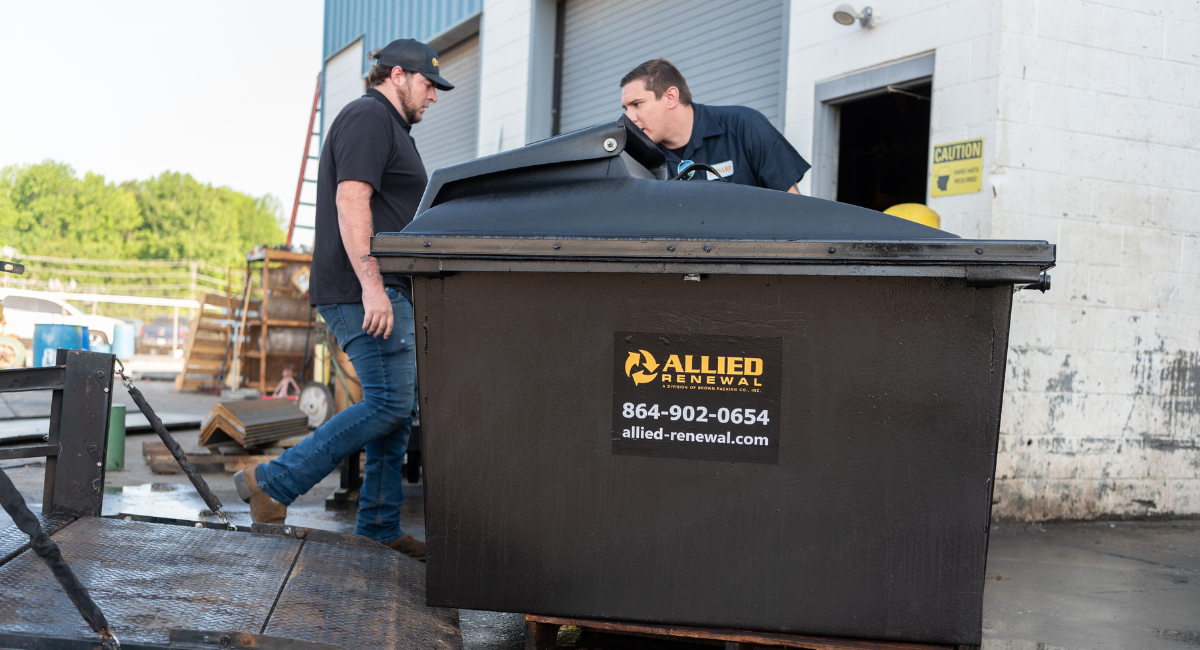In the fast-paced world of commercial kitchens, the last thing you need is a plumbing problem. A clogged drain or a sewage backup can bring a busy restaurant kitchen to a screeching halt, leading to costly emergency repairs. At Allied Renewal, we know a smooth operation depends on a lot of things, and one of the most critical is proper F.O.G. management.
Learn More About Restaurant Cooking Oil Recycling
What is F.O.G.?
F.O.G. stands for Fats, Oils, and Grease. In a commercial kitchen, this includes everything from used fryer oil and bacon grease to meat juices, butter-based sauces, and dairy products.
The hot liquid from these substances is easy to pour down a drain. However, as they cool, they solidify and cling to the inside of your pipes, eventually creating a thick, sticky buildup and blockage that traps other food scraps and debris. The result? Slow-draining sinks, foul odors, and eventual backups.
The High Cost of Improper F.O.G. Disposal
For a restaurant, a F.O.G. blockage is more than just an inconvenience. It can often lead to serious problems that pose major threats to your business, including:
- Operational Shutdowns—A significant plumbing backup can force you to close for a time, costing you revenue.
- Costly Repairs—Emergency plumbing services are expensive, and a complete drain line replacement can be a massive financial hit.
- Regulatory Fines—Cities and municipalities have strict regulations regarding F.O.G. disposal. An overflowing grease trap or a public sewer line blockage caused by your business can lead to hefty fines or even legal action.
The issues don’t stop with your building. Improperly disposed of F.O.G. contributes to large blockages in public sewer lines, which can cause widespread sanitation issues for entire communities.
The Solution: Proactive F.O.G. Collection and Disposal
Fortunately, preventing F.O.G. disasters is straightforward. It starts with proper training for your staff and a reliable partner, like Allied Renewal, to handle your waste. Here are some proactive measures to teach employees when it comes to proper F.O.G. management:
- Scrape It, Don't Rinse It. Train your kitchen staff to scrape all food scraps, grease, and sauces into the trash before rinsing dishes.
- Maintain Your Grease Trap. Grease traps are required for a reason. They are designed to capture F.O.G. before it enters the sewer system. However, a full grease trap is a useless one. Regular cleaning is non-negotiable.
- Proper Restaurant Oil Disposal. Never, under any circumstances, pour used cooking oil down the drain. Instead, collect it in a dedicated storage container. Don't have one? Reach out to our team to set one up.
Partner with Allied Renewal
Allied Renewal provides restaurants with proper commercial used cooking oil storage containers and a reliable schedule for collecting—and recycling—your used cooking oil. We turn your used cooking oil from a headache into valuable resources like biodiesel, ensuring it never becomes a hazard to your plumbing or our public works. Don't wait for a plumbing emergency to implement a proactive approach to F.O.G. management. Contact our team today!





